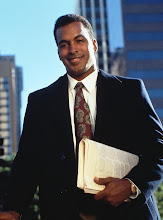In Nigeria, as in other developing countries and particularly those in Africa, the major tasks for government are to maintain stability and promote rapid economic and social development. Both of these tasks call for the right type of political leadership - dynamic, dedicated and development-oriented. The development process has to be induced, and the maintenance of political stability and of law and order is primarily a political function. The misfortune of the first Republic was that politicians failed dismally to provide the right type of leadership. Although they paid lip service to economic and social development, they were more interested in pursuing their own selfish ends and in amassing wealth at public expense. It is to be hoped that, in future, politicians will accept their role as the catalytic agents for bringing about political stability and providing the type of leadership which will make the people accept the sacrifices that inevitably have to be sustained. The new politicians must be men who are able to see where they are taking the country, who can project their image of the future, and convince the people of the merits of working to achieve this goal.
But it is the administrator who must turn the politicians' vision into practicable policies and execute them. It is therefore essential that the administrators should have the right relations with the politicians, and that both should have a proper consideration for the public. The right relationship between politicians and civil servants can only be one of partnership for the achievement of common goals and not one of subordination. The politician must regard and treat the senior civil servant as his partner, and not as a tool to be blackmailed into performing tasks which are not in the public interest. On the other hand, the administrator must regard the politician as a colleague and must not allow himself to be compromised into a position of subordination. As Sir Stafford Northcote and Sir Charles Trevelyan stated in their now historic report of 1853 on The organisation of the permanent civil Service, the administrators must possess "sufficient independence, character, ability and experience to be able to advise, assist, and to some extent, influence those who are from time to time set over them." It is not the role of the administrator to run counter to the politician over major policy. On major policies, the politicians should have their way even when the administrators are convinced they are wrong. But the politicians, for their part, must allow administrators to have their say. They must learn to appreciate that civil servants very often do know better than either ministers or the electorate and that it is their public duty to bring the test of practicality to politicians' enthusiasm.
If, however, senior civil servants are to have the right relations with politicians they must also have the right relationship with each other. There is no doubt that, by their disunity, rivalry, petty jealousies and personal ambition, the higher civil servants made it possible for unscrupulous politicians to turn them against each other and thus render them impotent. This had devastating effects on morale in the rank and file of the civil service. Among the civil servants, particularly among senior administrators, there is a need to develop an adequate esprit de corps. There is thus an urgent need for a code of conduct to govern the relations between politicians and the administrators on the one hand, and among the higher civil servants and the administrators on the other.
In other words, the administrator must be able to work closely with and loyally for the politicians. He must be able to harmonise conflicting views and competing interests. He must be able to advise on, and participate in; the determination of policy, and implement approved policies. He must do all this as the politician's partner which calls for a high measure of purpose and direction. On the other hand, the politician must recognise that it is his task to provide leadership, to decide on policies and not to interfere with the execution of policies.
He is as much a public servant as the civil servant and must, under no circumstances, attempt to re-establish that master-servant relationship between himself and the senior civil servant which was the bane of the post-Independence era in Nigeria.





No comments:
Post a Comment
Thanks for visiting, it will be nice to comment on this site. Your privacy is guaranteed, if need be. Once more, thanks for visiting!